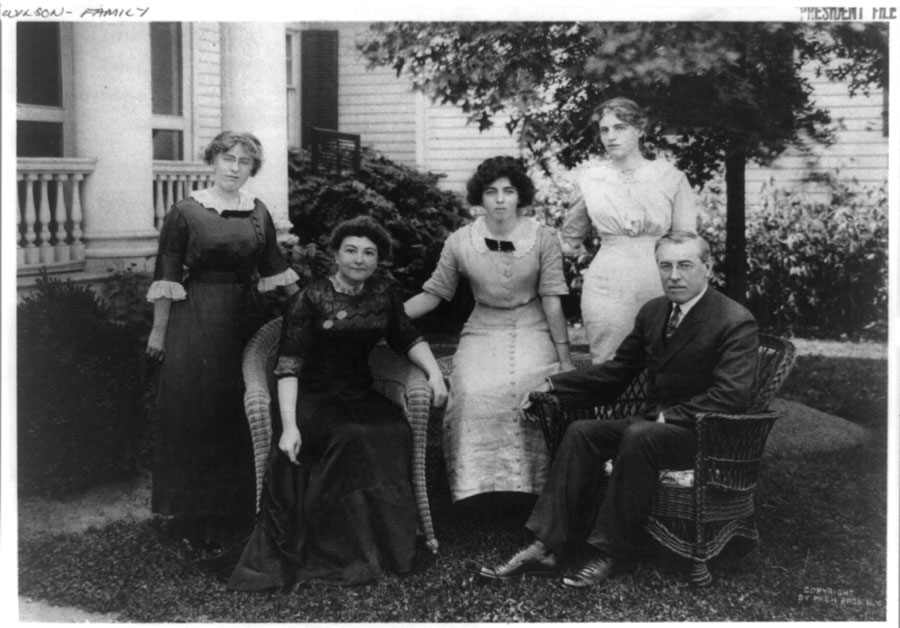
Woodrow Wilson with his first wife, Ellen, and their three daughters (from l to r), Margaret, Eleanor and Jessie in Cornish, New Hampshire where the family often vacationed in the summer.

Woodrow Wilson with his first wife, Ellen, and their three daughters (from l to r), Margaret, Eleanor and Jessie in Cornish, New Hampshire where the family often vacationed in the summer.